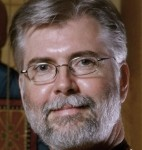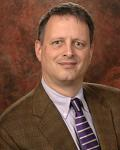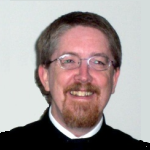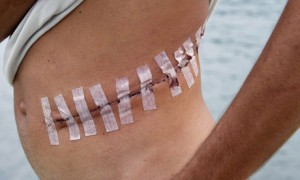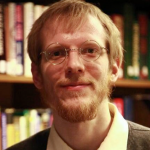Deprecated: trim(): Passing null to parameter #1 ($string) of type string is deprecated in
/home/aoiusa/public_html/wp-content/plugins/sexybookmarks/public.php on line
388
Deprecated: trim(): Passing null to parameter #1 ($string) of type string is deprecated in
/home/aoiusa/public_html/wp-content/plugins/sexybookmarks/public.php on line
394
Deprecated: trim(): Passing null to parameter #1 ($string) of type string is deprecated in
/home/aoiusa/public_html/wp-content/plugins/sexybookmarks/public.php on line
400
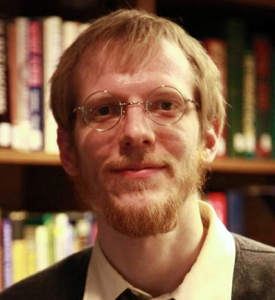
Dylan Pahman
Source:
Acton Institute | Dylan Pahman
In the Sayings of the Desert Fathers, a collection of wise stories and sayings from the first Christian monks, the following is attributed to one Abba Zeno: “Never lay a foundation on which you might sometime build yourself a cell.” This saying has at least two possible applications: 1) Do not start something you do not intend to see through. 2) Do not put off for tomorrow the asceticism you can do today. Unfortunately, both of these lessons are lost on our federal government when it comes to financial responsibility, and it is our children who will pay for the sins of their fathers.
Starting October with a government shutdown over the congressional budget and the real possibility that we may hit the limit of our debt ceiling, our federal financial situation is not very reassuring. Last month, the Congressional Budget Office (CBO) warned that “under a wide range of possible assumptions about some key factors that influence federal spending and revenues, the budget is on an unsustainable path.” So long as we take in less revenue than we spend, our yearly deficit-to-GDP ratio will continue to grow.
While we may appreciate some good news that the deficit was smaller over the last year than the last four and is projected to “decline to 68 percent of GDP” by 2015, the good news ends there. The CBO predicts that after 2015 “budget deficits would gradually rise again under current law … mainly because of increasing interest costs and growing spending for Social Security and the government’s major health care programs.”
Wishful thinking will not fix the problem, and the longer we procrastinate, imagining that “sometime” we will do what is necessary to get our budget back on track, the harder it will be for us to actually do it. Yet, in “Social Security and the government’s major health care programs,” we have laid foundations for services with the sentiment that “sometime” we will bother to make sure we can afford them, but “sometime” never seems to come.
What does this mean for our financial future? Austerity, while it is not enough on its own, would seem to be inevitable. But what sort of austerity, and how severe, is up to us. As the CBO notes, “bringing debt back down to 39 percent of GDP in 2038 … would require a combination of increases in revenues and cuts in noninterest spending.”
Freely-chosen, self-sacrificing austerity, chosen for the sake of what is good, such as “the kingdom of God and his righteousness” (Matthew 6:33), is asceticism. As Fr. Georges Florovsky wrote, “True asceticism is inspired not by contempt, but by the urge of transformation.” For Christians, it reflects a desire to become better and more virtuous than one currently is, not a wholesale rejection of material reality. The “cell” that Abba Zeno refers to is a monk’s dwelling. It thus represents an ascetic lifestyle, and his advice is not to put it off. While most people are not called to the strict asceticism of monks, a lighter, everyday asceticism is everybody’s duty, because everyone is made by God to become more than they currently are.
Forced austerity because of an evil, on the other hand, is hardship. The CBO projects the following consequences if our financial practices do not change:
-
“Increased borrowing by the federal government would eventually reduce private investment in productive capital.…”
-
“Federal spending on interest payments would rise, thus requiring larger changes in tax and spending policies to achieve any chosen targets for budget deficits and debt.”
-
“The government would have less flexibility to use tax and spending policies to respond to unexpected challenges, such as economic downturns or wars.”
-
“The risk of a fiscal crisis — in which investors demanded very high interest rates to finance the government’s borrowing needs — would increase.”
In short, when it comes to the federal budget, the self-discipline we put off today is tomorrow’s hardship. Decreased investment, increased taxes, greater economic vulnerability, and an increased risk of fiscal crisis are what we have to look forward to in the next 25 years on our current course. The result would be increased unemployment and poverty and decreased upward mobility, as well as all the societal ills that go with them. We should not be content with such a future for our children.
But if we freely embraced a more ascetic course now, what would become of all our social programs, upon which so many rely? First of all, the desert fathers caution not to attempt to go from zero to sixty in four seconds, so to speak. The road of self-discipline is traveled with small steps. If we do not proceed cautiously, we could face other negative, unintended consequences. A good start would be reforming costly programs with known abuses and inefficiencies, such as our disability programs, whose problems Chana Joffe-Walt reported for NPR earlier this year. Regarding their cost, she writes, “The two big disability programs, including health care for disabled workers, cost some $260 billion a year.”
Second, and perhaps counter-intuitively to some, a more balanced budget would mean more opportunity to responsibly help those in need in the future. As an example from history, take the Cistercians in the thirteenth century. Started with the intention of being a stricter order than other Benedictines, they practiced an extreme asceticism. However, as this meant living more simply, consuming less, and working and producing more (since “pray and work” was the common ascetic ethic), they quickly became extremely wealthy.
As Ludo J. R. Milis explains in Angelic Monks and Earthly Men, “Cistercian monks … had to deal with the ‘embarrassment of riches’ — and how limited were the solutions proposed to escape from this wealth, unwanted and unsearched for! No alternatives existed, other than practising works of charity towards those rejected by ordinary society or giving up the initial purity of their observance.” Now that would be a nice problem to have.
The situation of our government today is different than the Cistercians in the thirteenth century, of course, but there is a lesson to be learned: The austerity needed to get our budget under control would require serious self-sacrifice, but one of the results of financial health is the option to responsibly practice “works of charity towards those rejected by ordinary society.” We could then help those in need out of our surplus, rather than through deficits.
In this we find a biblical model of social equality. As St. Paul wrote to the Corinthians, “I do not mean that others should be eased and you burdened; but by an equality, that now at this time your abundance may supply their lack, that their abundance also may supply your lack — that there may be equality” (2 Corinthians 8:13-14). If our financial course does not change in a more ascetic direction, however, our lack will rob our children of the abundance they need to care for themselves and us, shifting the burden of austerity inequitably onto their backs.
The self-discipline we put off today is tomorrow’s hardship. And the moral cost of our procrastination will be intergenerational injustice.
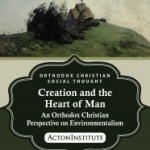
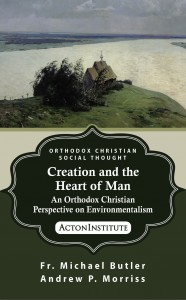 Source: Acton Institute
Source: Acton Institute